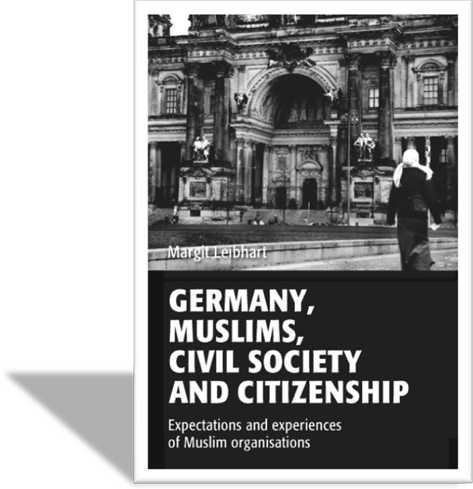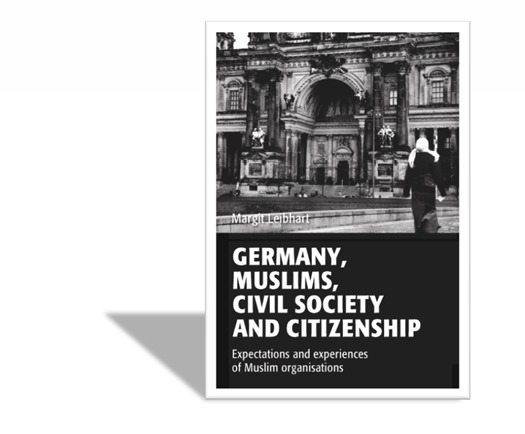Published 04 January 2011
£7 /9781903718698 /215mm x 279mm/60 pages [including bibliography] /paperback / Islamic Human Rights Commission
Buy here
Download the PDF here.
In 2007 – 08, Islamic Human Rights Commission (IHRC) undertook a survey of Muslim civil society organizations in Germany.
The aim was to assess according to their view, the priorities and concerns of Muslims in Germany as opposed to the way government and political discourse present Muslim communities.
This book is an analysis of the results of that survey by Margit Liebhart. Combined with an overview of existing work in the field, Liebhart highlights minority issues within the context of Muslim-Germany in an effort to “assist those who wish to seek positive change in structuring minority-majority relations” in Germany and beyond.
The report illustrates that despite the strong Islamic roots embedded in the 3.5 million Islamic population of Germany, little has been done to achieve a permanent presence of Islam. This lack of presence partly emanates from a lack of “formal German citizenship,” and the “Guest-workers perception,” both of which she explores in detail.
Moreover, although she purports that different sects of Islam must unite in identifying “’Islamic values’ that bind them together in order to be represented as one religious community,” she uses Ameli and Merali (2004) to illustrate that despite this seeming divide, there was a “single Muslim experience” amongst the different sects of the Islamic society. Liebhart’s study demonstrates that Islamophobia is ever-present. Addressing it is hampered by State complicity, Muslim alienation both self-imposed and as a result of discrimination by the state, and with a lack of education and subsequent misunderstandings on the part of the non-Muslims accountable for this phenomenon in Germany.
Methodology
IHRC conducted a survey which asked a series of questions pertinent to the expectations and experiences of Muslim organisations. The qualitative data and responses from participants highlighted issues pertaining to demarcation of the Muslims in Germany that stemmed from misconceptions that non-Muslims had about “symbols of categorization,” for example the relevance of the veil. The results of the survey demonstrated “the need for urgent improvements” regarding the understanding of Islam and the meaning of its traditions in the majority society, in an attempt to attain a mutual understanding between the Muslim and non-Muslim communities of Germany.
For further information and review copies (both English and German) please contact Dawud Mwilwa Kapansa at dawud@ihrc.org or on +44 20 8904 4222 or +44 7930 593566.





